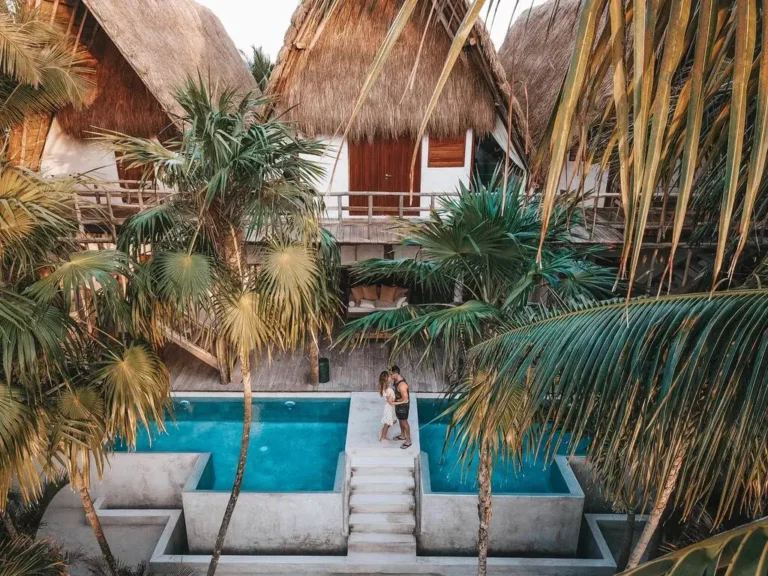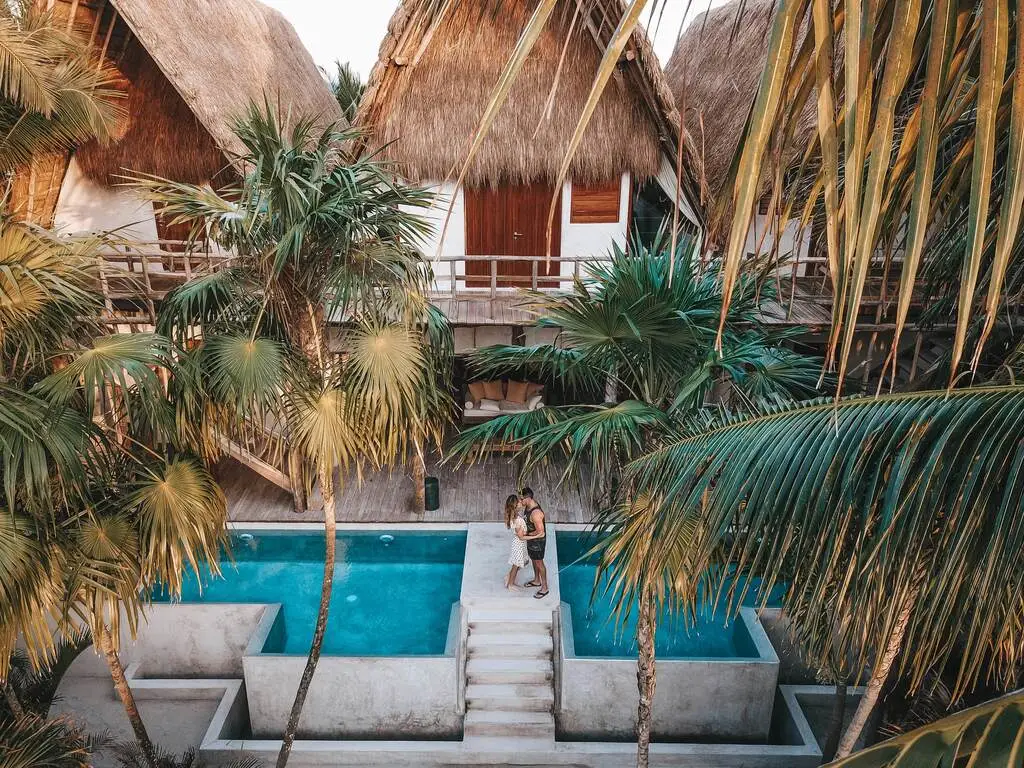Updated in January 2025!
The Turkey Digital Nomad Visa Rolled Out
A sigh of relief for all lovers of the Middle East! Since mid-April 2024, Turkey has finally received a Digital Nomad Visa. And that makes so much sense.
The country has become a hotspot for Digital Nomads lately, mixing its ancient charms with some seriously upgraded infrastructure. It’s more than just a pretty place; Turkey’s forward-thinking policies are drawing in the global remote-work crowd.
With the new Visa, you can stay in Turkey for up to one year. There is also an option to renew the visa, allowing for longer stays if you continue to meet the eligibility criteria.
Let’s dive into all the details, the application process, and the requirements of the new Turkey Digital Nomad Visa.
Turkey Digital Nomad Visa: Who is Eligible?
To qualify for the visa, you need to be a remote worker aged between 21 and 55 and a citizen of one of 36 countries across Europe and North America, including the USA.
Here’s the complete list: France, Germany, Italy, Belgium, Netherlands, Luxembourg, Ireland, Denmark, Greece, Croatia, Spain, Portugal, Austria, Finland, Sweden, Czech Republic, Hungary, Poland, Slovenia, Slovakia, Estonia, Latvia, Lithuania, Malta, Bulgaria, Romania , Norway, Iceland, Liechtenstein, United Kingdom, Switzerland, USA, Canada, Russian Federation, Ukraine, Belarus.
Applicants are required to demonstrate a monthly income of at least $3,000 USD or an annual income of $36,000 USD. Additionally, you must hold a college degree, be employed by a company based outside of Turkey, or be self-employed.
Lastly, you’ll need a passport that remains valid for at least six months after your arrival in Turkey, along with a recent photo for your visa application.
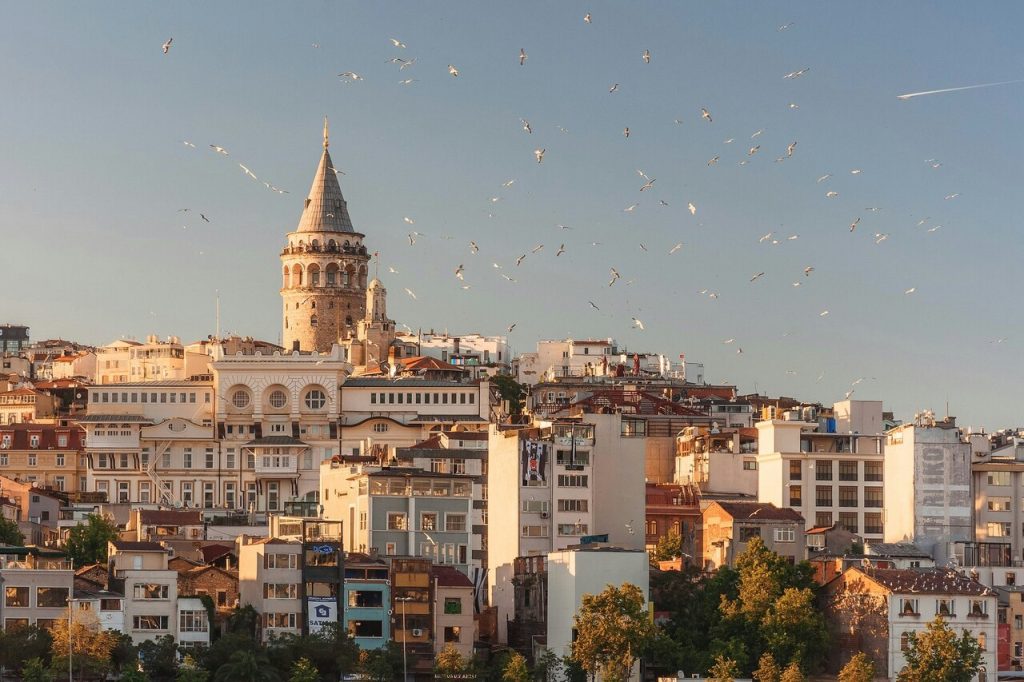
Turkey Digital Nomad Visa: The Application Process
Applying for a Digital Nomad Visa in Turkey is straightforward. Start by obtaining a Digital Nomad Identification Certificate, which you can do by uploading documents that verify your status as a Digital Nomad between the ages of 21-55.
You can find the application form for the Digital Nomad Visa Certificate on this official platform: “Digital Nomads Go Türiye”.
To apply for a Digital Nomad Identification Certificate, start by registering on the platform. Once registered, log in to your account and upload scanned versions of the following documents:
- A travel document or passport valid for at least 6 months from your planned arrival date in Türkey
- A diploma or degree certificate proving you are a university graduate
- Documentation confirming that you work in the Digital Nomad sector:
a) A contract if you are employed by a company (excluding companies based in Türkiye).
b) A business contract between you and a company if you are self-employed (excluding companies based in Türkiye) - A biometric photograph
- Proof of income showing that you earn at least $3,000 USD per month or $36,000 USD annually
The platform will review your documents to confirm your eligibility. If your application is successful, you’ll receive a Digital Nomad Identification Certificate.
With this certificate in hand, you can then apply for the Digital Nomad Visa at any Turkey Visa center or consulate, along with other required documents. This process will take anywhere from 3 to 15 days to complete.
If you’re already in Turkey, you can use the certificate to apply online for a residence permit on this Turkish government website.
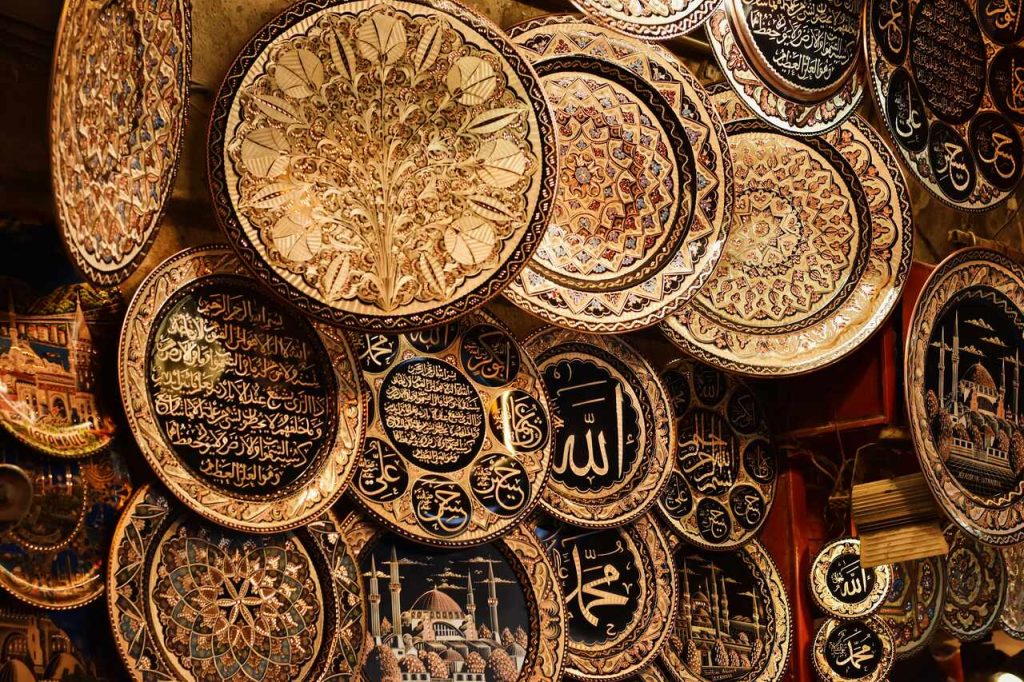
The Importance of Travel Medical Insurance
Turkey has a well-developed healthcare system that offers both public and private options. Public hospitals are affordable and widely available, but they can sometimes be crowded, and the level of English spoken by medical staff may vary.
Private hospitals, on the other hand, provide high-quality care, often with shorter wait times and staff who are more likely to speak English. However, these facilities can be quite expensive without insurance. For instance, a visit to a private hospital for a minor issue could cost anywhere from $100 to $200, while more severe treatments or surgeries can run into the thousands.
If you’ve been following me for a while, you know I’m a big advocate for travel health insurance. Over the past five years of living as a digital nomad family, we had numerous situations that could have cost us a fortune without proper insurance coverage.
That’s why having reliable health insurance is absolutely crucial. There are some excellent providers that specialize specifically in the needs of digital nomads.
One of the best, in my opinion, is SafetyWing. They provide coverage for unexpected illnesses and injuries, including COVID-19, and even have a home country coverage option for those times you head back home for a visit (that’s something many insurances don’t have).
Their plans are affordable, easy to understand, and you can sign up or cancel at any time. Plus, with their extensive network of hospitals and clinics worldwide, you can have peace of mind knowing that you’ll be covered no matter where your travels take you. Check out the Safety Wing Nomad insurance here.

Why Visiting Turkey?
Turkey is perfect for digital nomads who want affordable living, fascinating history, and modern comforts. Here’s why it deserves a spot on your travel list:
Save Money, Stay Longer
Living in Turkey is super budget-friendly. In Istanbul, monthly costs (minus rent) are around $540. Head to smaller cities like Izmir, and that drops to $430. Eating out, getting around, and having fun? All wallet-friendly! More on that further below.
History Everywhere
Turkey is like an open-air museum. From the magical caves of Cappadocia to ancient Troy, every corner has a story. Perfect for nomads who love a side of culture with their work.
Pick Your Vibe
Big city buzz in Istanbul? Chill beach vibes in Bodrum? Epic mountain adventures? Turkey’s got it all.
Ready for Remote Work
Internet? Check. Co-working spaces? Plenty. Istanbul alone has loads of cool spots where you can work, meet people, and sip amazing coffee.
Easy to Make Friends
Turkey’s mix of locals and expats makes it a social hotspot. Think festivals, networking events, and friendly meetups.
Language is No Biggie
Turkish is the main language, but don’t worry—English is widely spoken in cities and tourist spots. You can easily get around, order food, and chat with locals.
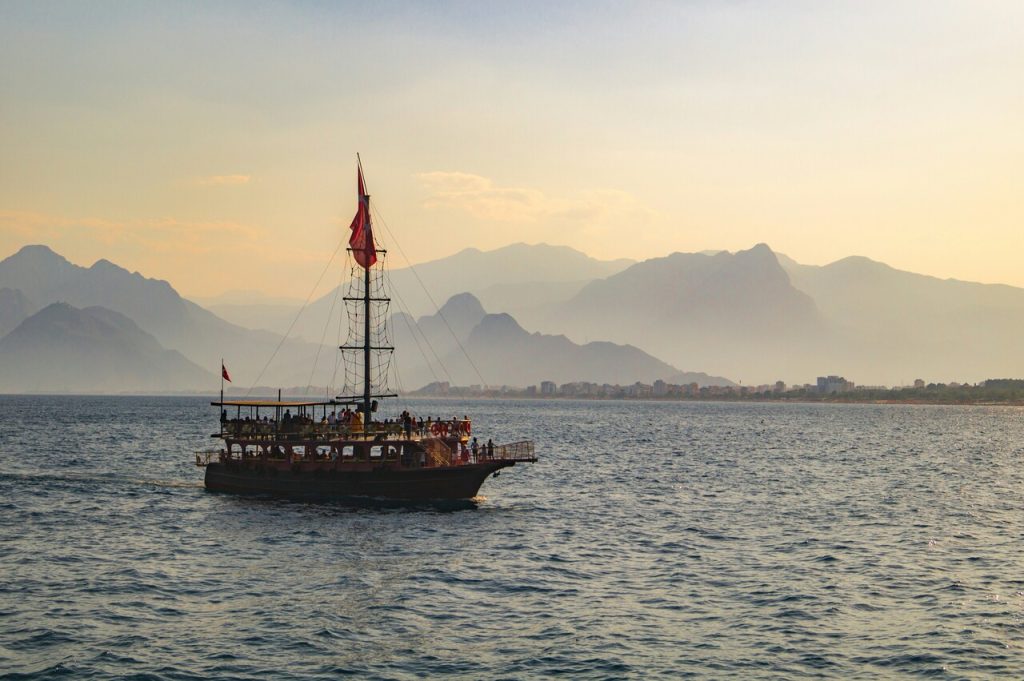
The Best Places to Stay in Turkey
Check out these amazing hotels in Turkey, or use the map below. 👇
Istanbul
Istanbul is Turkey’s busiest city and its heart for culture and business. With around 15 million people calling it home, it’s a buzzing mix of expats, lively neighborhoods, and late-night fun.
Love history and architecture? You’ll be spoiled here. Istanbul has gems like the Hagia Sophia, Topkapi Palace, and the Blue Mosque—all UNESCO World Heritage Sites.
Need a place to stay? No problem. From fancy hotels to cozy boutique hostels, there’s something for every budget.
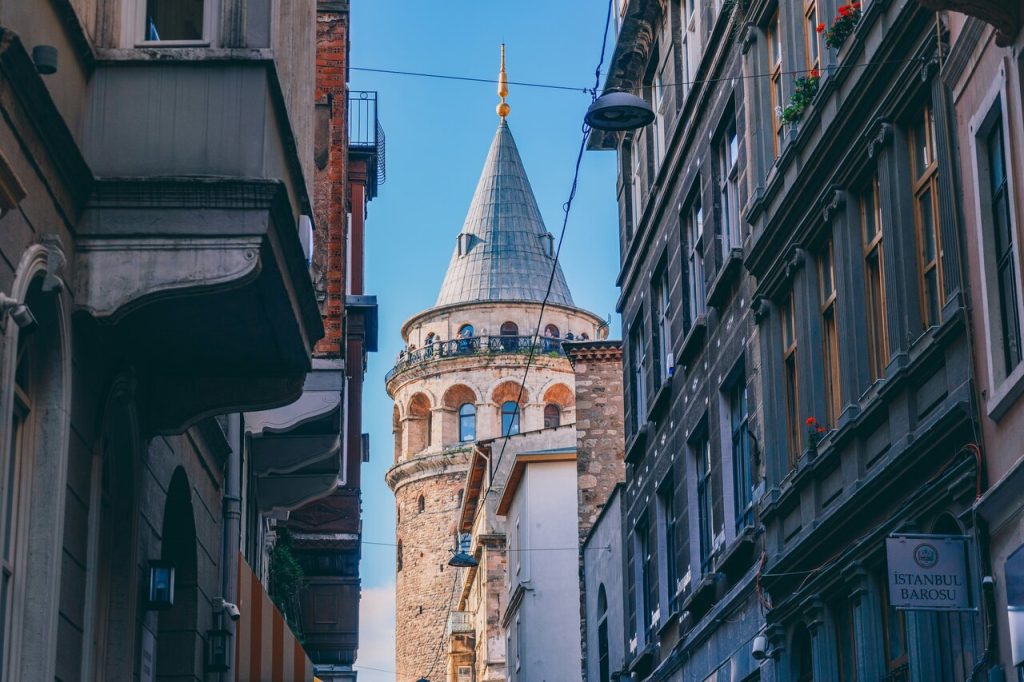
Cappadocia
Cappadocia stands out with its otherworldly landscapes and iconic fairy chimneys. Stay in a cave hotel for a mix of modern comfort and historic charm.
The highlight? Hot air balloon rides at sunrise, offering breathtaking views of the rocky terrain.
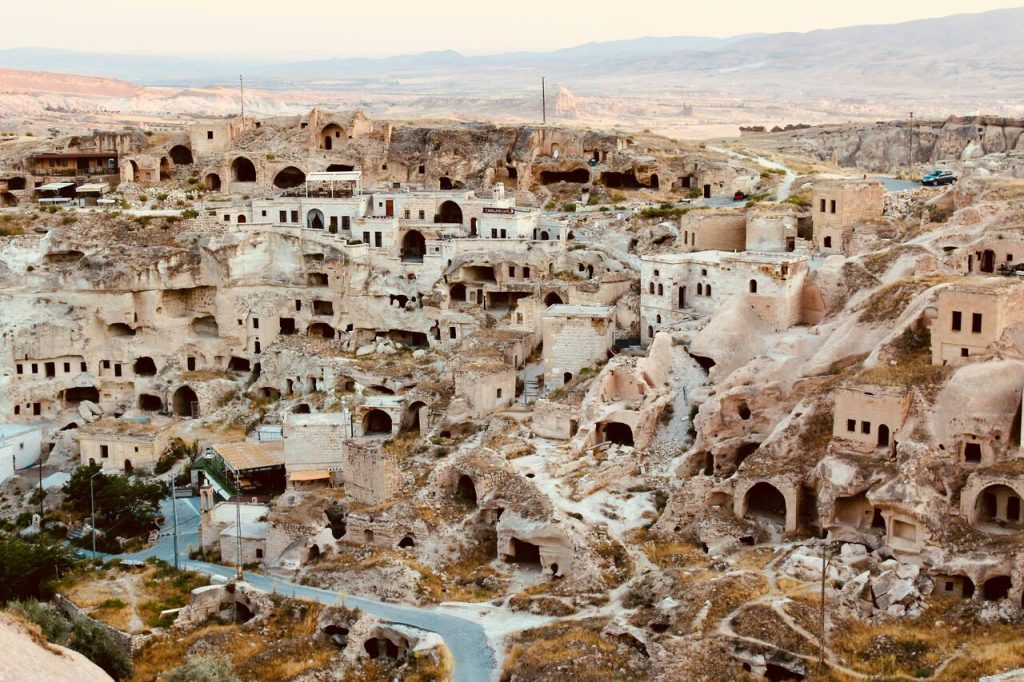
Antalya
Antalya, on the Mediterranean coast, is famous for its blue waters, green landscapes, and pebble beaches. Over 13 million visitors come each year for its luxury resorts and lively cultural scene.
It’s also the gateway to the Turkish Riviera, ideal for exploring ancient ruins and nearby natural wonders.

Bodrum
Bodrum is a top pick for yachting lovers, blending seaside charm with a touch of luxury. You’ll find high-end restaurants, stylish boutiques, and a lively nightlife scene.
Don’t miss Bodrum Castle, home to the Museum of Underwater Archaeology.
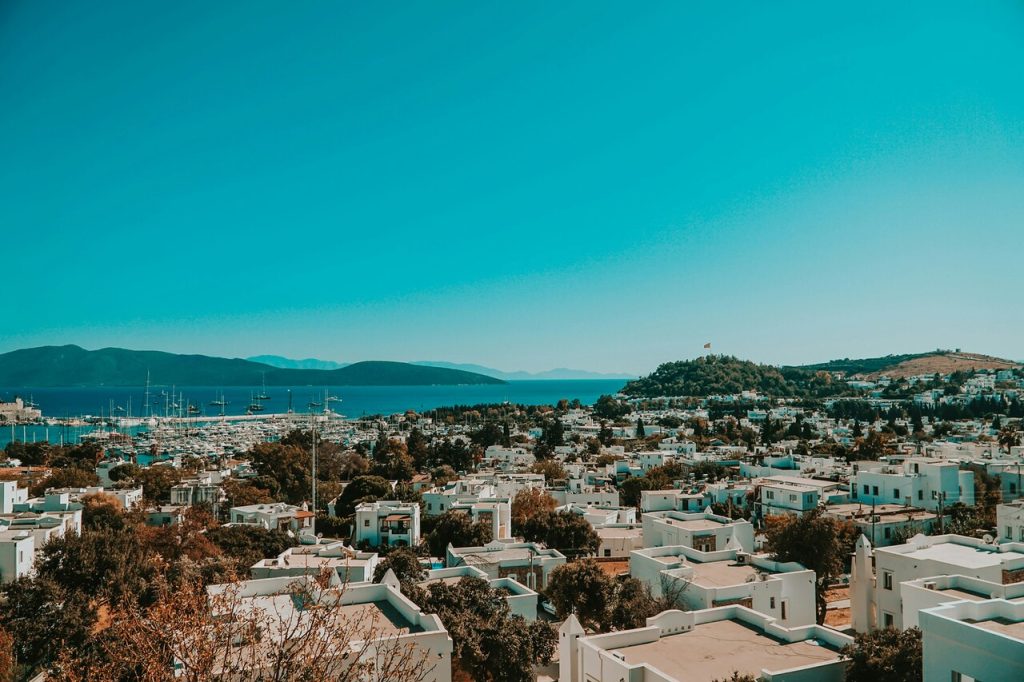
Izmir
Izmir, Turkey’s third-largest city, is known for its welcoming vibe and ancient history. Explore landmarks like the Agora Open Air Museum, showcasing its deep roots.
With its coastal location, fresh seafood and waterfront dining are always on the menu. Plus, it’s a great base for visiting ancient sites like Ephesus and Pergamon.
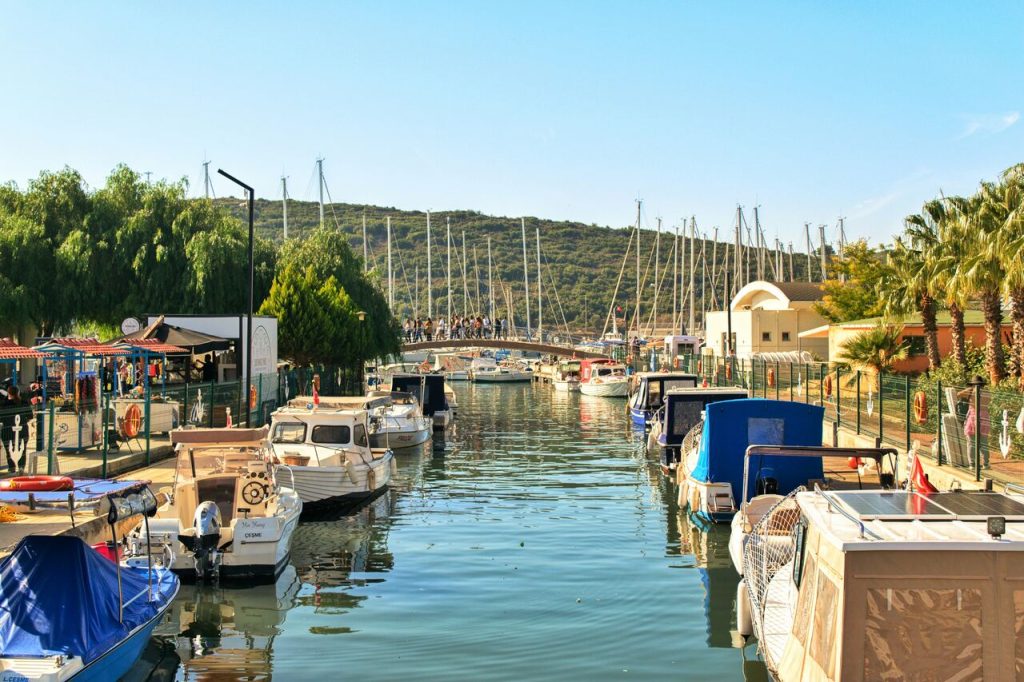
Ankara
Ankara, Turkey’s capital, might not be on every tourist’s list, but it’s packed with history and culture. Visit Anitkabir, Atatürk’s mausoleum, and the Museum of Anatolian Civilizations for a glimpse into the past.
The city has a relaxed vibe, less crowded than Istanbul, and feels youthful thanks to its large student population.
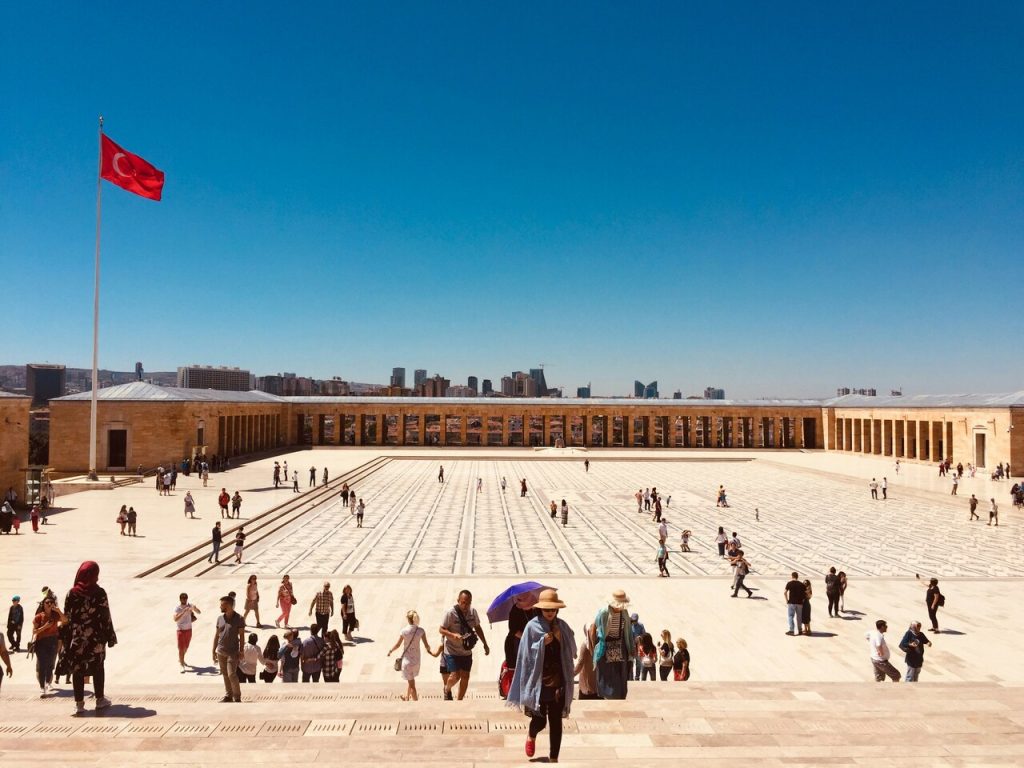
Cost of Living in Turkey for Digital Nomads
The actual cost can vary depending on the city or region, with Istanbul and other major cities generally being more expensive than smaller towns or coastal areas. Here’s a breakdown of typical costs for everyday life in Turkey:
Monthly Cost of Living for Digital Nomads in Turkey (approximations):
Accommodation:
- Shared apartment room: $200 – $350 (€186 – €325)
- One-bedroom apartment in city center: $300 – $500 (€279 – €465)
- One-bedroom apartment outside city center: $200 – $400 (€186 – €372)
- Utilities (electricity, heating, cooling, water, garbage): Monthly for 1 person: $40 – $70 (€37 – €65)
- Internet (60 Mbps or More, Unlimited Data, Cable/ADSL): Monthly: $15 – $25 (€14 – €23)
Typical Daily Expenses (approximations):
Meals:
- Inexpensive restaurant meal: $3 – $5 (€2.79 – €4.65)
- Mid-range restaurant (three-course meal for two): $15 – $25 (€14 – €23)
Transportation:
- One-way ticket (local transport): $0.50 – $1 (€0.47 – €0.93)
- Monthly pass (regular price): $20 – $40 (€18.60 – €37.20)
Groceries:
- Liter of milk: $0.70 – $1 (€0.65 – €0.93)
- Loaf of fresh white bread (500g): $0.40 – $0.80 (€0.37 – €0.74)
- Dozen eggs: $1.50 – $2.50 (€1.40 – €2.33)
- Local cheese (1kg): $5 – $10 (€4.65 – €9.30)
- Apples (1kg): $1 – $2 (€0.93 – €1.86)Oranges (1kg): $1 – $1.50 (€0.93 – €1.40)
Leisure Activities:
- Fitness club, monthly fee for 1 adult: $20 – $40 (€18.60 – €37.20)
- Cinema, international release, 1 seat: $3 – $5 (€2.79 – €4.65)
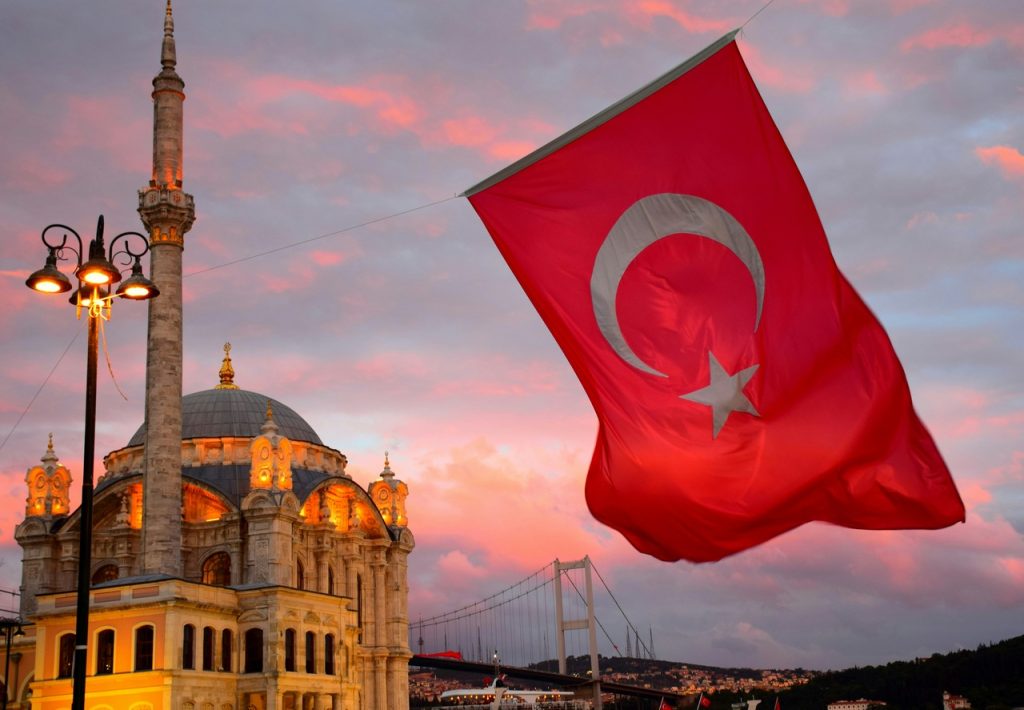
What is the Turkish Culture Like?
Turkish culture is a colorful mix of history, tradition, and a bit of magic. Here’s a glimpse without the usual clichés:
Coffee & Fortune-Telling
Turkish coffee isn’t just a drink—it’s a ritual. After sipping the rich brew, your cup’s grounds can be read to predict your future. Sip, chat, and maybe learn where life’s taking you next.
Bazaar Adventures
Step into the Grand Bazaar in Istanbul, one of the world’s oldest and biggest markets. With 4,000+ shops and 61 streets, it’s more than shopping—it’s a cultural deep dive.
Food Lovers’ Paradise
Kebabs are just the start. Mezes, baklava, and street snacks like simit (a sesame bread ring) are must-tries. Turkish flavors are bold, spicy, and unforgettable.
Hamams: The Ottoman Spa Day
A trip to a Turkish bath is pure relaxation. Marble steam rooms, a full-body scrub, and walking out feeling fresh and light—it’s tradition and self-care rolled into one.
Diverse and Vibrant
Turkey is home to many ethnic groups, including Kurds and Arabs, creating a rich blend of music, dance, and everyday life.
History in Every Corner
From ancient Ephesus to the Blue Mosque’s stunning domes, Turkey’s architecture tells its story. Don’t miss Istanbul’s modern art galleries for a cool contrast to the old city walls.
Unique Festivals
Turkey loves a celebration. Whether it’s the Istanbul Film Festival or the Camel Wrestling Championship (yes, that’s a thing), there’s always something lively happening.
Warm Welcomes
Turkish hospitality is unmatched. Expect endless cups of tea, big smiles, and genuine warmth wherever you go.
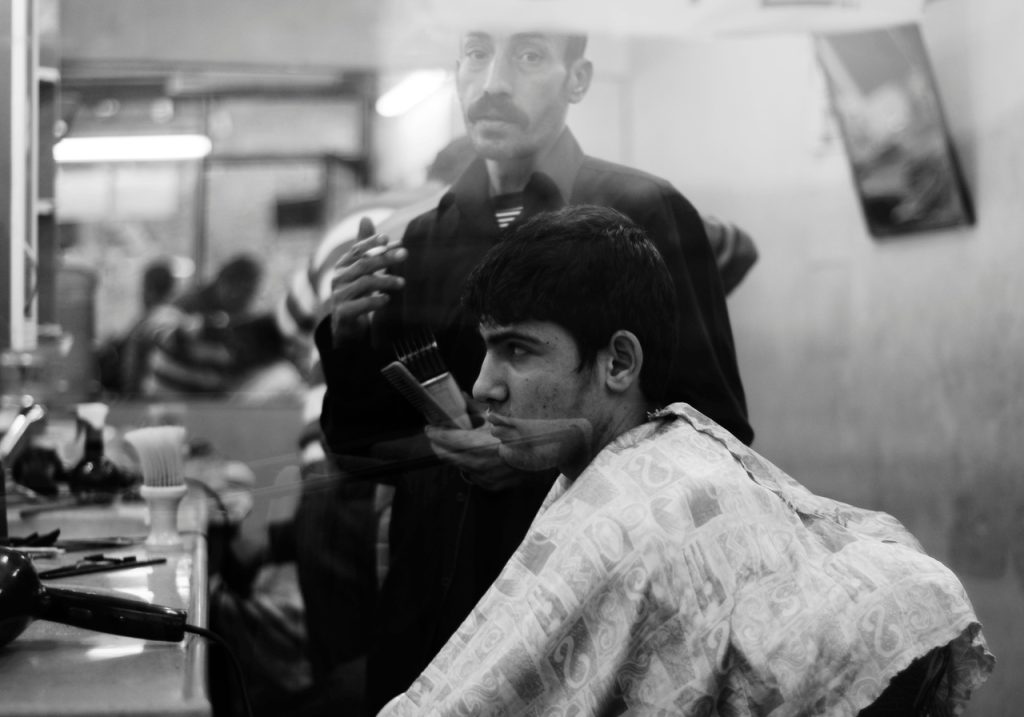
What Are the Most Important Phrases in Turkish?
Here are 40 essential phrases that are particularly useful for your Digital Nomad stay in Turkey:
- Merhaba – Hello
- Günaydın – Good morning
- İyi akşamlar – Good evening
- Hoşça kal or Güle güle – Goodbye (Hoşça kal is used by the person staying, Güle güle by the person leaving)
- Lütfen – Please
- Teşekkür ederim – Thank you
- Evet – Yes
- Hayır – No
- Affedersiniz – Excuse me
- Yardım edebilir misiniz? – Can you help me?
- Tuvalet nerede? – Where is the bathroom?
- Kaç para? – How much is this?
- Çok pahalı – That’s too expensive
- Su – Water
- Bir tane daha lütfen – One more, please
- Hesap lütfen – Check, please (when you are ready to pay at a restaurant)
- Beni buraya götürün, lütfen – Take me here, please (useful in taxis)
- Bu ne? – What is this?
- Türkçe bilmiyorum – I don’t speak Turkish
- İyi günler – Have a good day
- Anlamıyorum – I don’t understand
- Konuşabilir misin? – Can you speak…? (add “İngilizce” for English, “Almanca” for German, etc.)
- Acıktım – I’m hungry
- Susadım – I’m thirsty
- Bir şey değil – You’re welcome (response to thank you)
- Adınız ne? – What’s your name?
- Benim adım… – My name is…
- Memnun oldum – Nice to meet you
- Nasılsınız? – How are you?
- İyiyim, teşekkürler – I’m fine, thank you
- Ne kadar sürer? – How long does it take?
- Buradan alabilir miyim? – Can I get this here?
- Bağlantı var mı? – Is there a connection? (often used for internet or transport)
- İndirim var mı? – Is there a discount?
- Polis çağırın! – Call the police!
- Yakın mı? – Is it close?
- Uzak mı? – Is it far?
- Şerefe! – Cheers! (to toast when drinking)
- Kapalı – Closed
- Açık – Open
👉 You might also find these articles interesting:
– Top 10 Digital Nomad Friendly Countries
– Greece Digital Nomad Visa
– Malta Digital Nomad Visa
– Costa Rica Digital Nomad Visa
– Digital Nomad Visa Japan
Are you planning to visit Turkey, or do you have any questions? Please let me know in the comments!
Thank you for reading and for making me part of your day! Yours, Lulu
Just a heads up: some links in the article “Turkey Digital Nomad Visa” on Nomadmum.com are affiliate links. This means if you click and buy, I might earn a small commission at no extra cost to you.


